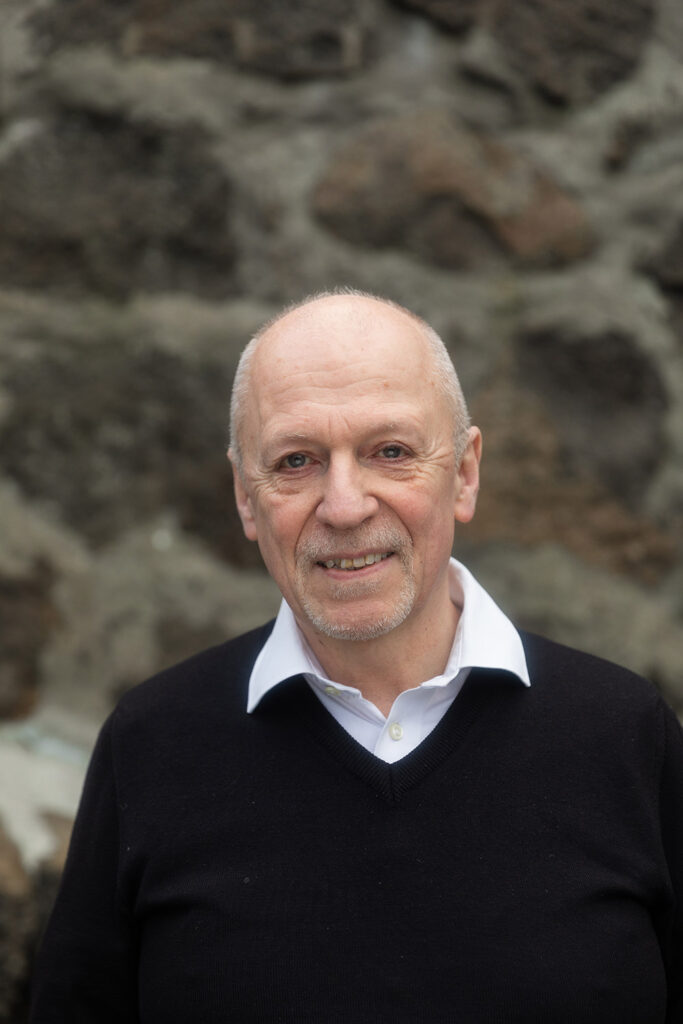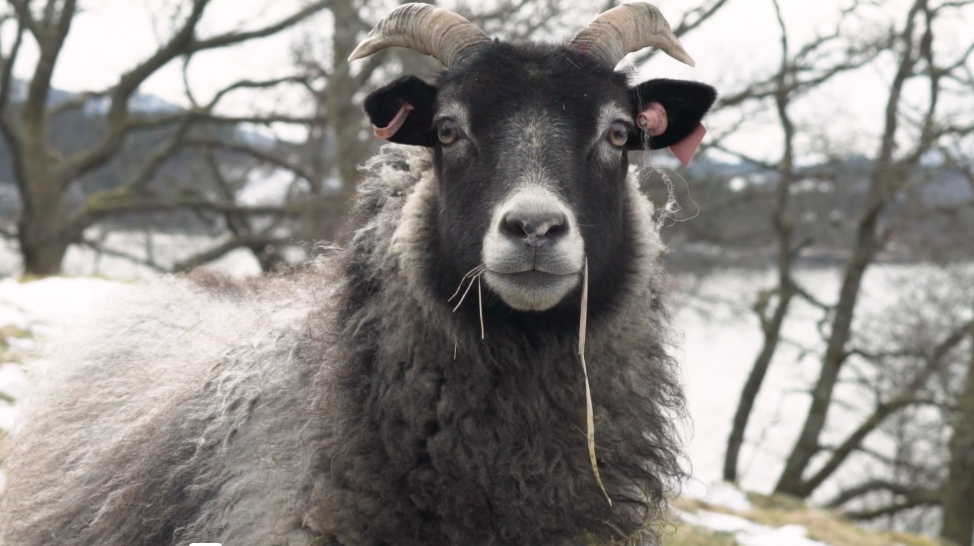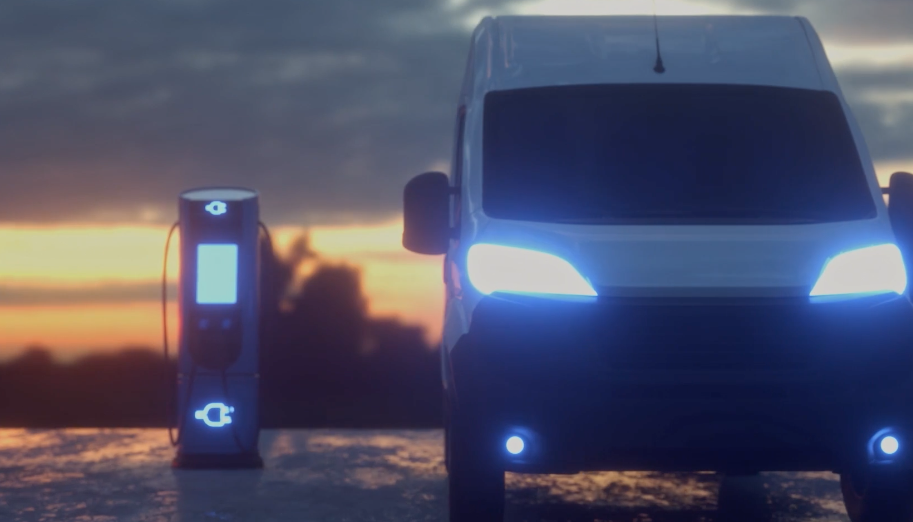Back on track
Annual report 2022

Two years after Covid all but put a halt to NORA’s work, we were able to return to a normal activity level in 2022.
NORA made DKK 5 million in grants to 13 external projects in 2022, and we had 36 active projects in our portfolio at the end of the year. The Nordic Council of Ministers’ Vision 2030 for a green, competitive and socially sustainable Nordic region guides us not just in our grant-making to external projects, but also in the activities we put on. In 2022, 10% of our external grants went to projects related to the green transition, 56% of funding went to projects related to competitiveness and 34% to social sustainability.
The agenda-setting and alliance-building aspect of NORA’s work encompassed several activities in 2022. NORA organised a side-event during the UNLEASH conference in Nuuk in order to introduce ourselves to the young people of the North Atlantic region. This saw NORA and the NORA Committee hold a North Atlantic youth meet at the start of December. Participants contributed their ideas about how to strengthen relations among the region’s young people, and what they would like to see these relations lead to. The committee has earmarked funding to hold a follow up event.
NORA, together with members of our network, held three break-out sessions during the Arctic Circle conference in Reykjavík focusing on ocean energy, ocean biomass and settlement in remote areas.
NORA is involved in constructive talks with the Orkney Islands Council to begin working together on individual projects. The approach holds considerable appeal and could be ground-breaking for NORA, since one of the potential elements is a financial mechanism for establishing co-financed projects. Discussions with the Orkney Islands Council will continue in 2023. NORA is also interested in involving Shetland and the Hebrides in our activities.
In 2023, NORA will be chaired by Iceland. NORA’s action plan reflects the chairmanship’s focus on investments in blue bioeconomy and young people, and we expect this will make for an exciting year. For more information, please refer to our action plan at nora.fo.

Stories From Projects
NORA’s portfolio includes more than 30 active projects across a range of stages in their implementation: while some are nearing completion, others have just been approved for a grant. In this year’s annual report, we single out two projects: Wool Walks, which is seeking to develop a niche within a niche in the tourism industry, is due to be completed in 2023; and Electin, an energy project that is in its initial stage. This year’s annual report will also detail other NORA-funded projects that Electin’s lead, Icelandic New Energy, has been involved in.

Wool walks
The past three years, NORA has provided funding for Wool Walks. A niche tourism activity that could even be called a niche within a niche, Wool Walks appeals to ramblers who knit or otherwise have an interest in wool. Read more
NORA at Arctic Circle 2022
For a number of years, NORA has actively participated in Arctic Circle Conference in Reykjavik. Here we have regularly participated in and organized several events in both plenary and side events. In 2021, NORA participated in a panel meeting on the blue bioeconomy, and NORA contributed with perspectives on future relations in the North Atlantic to a session organized by the West Nordic Council.
Preveiously, NORA has, for example, highlighted the possibility of exporting green energy from the North Atlantic.
How the can the ocean provide us with sustainable prosperity?
Read moreHow can the oceans provide us with greater prosperity, while at the same time helping us to achieve our green-growth goals? This was the question posed by NORA and Oslo-based Nordic Innovation during the 2022 Arctic Circle Assembly in Reykjavík.
The oceans and seas have always played a significant role — economically, culturally, and socially — in the development of the Nordic countries. But the rapid expansion of the global ocean economy has placed increased importance on ocean ecosystems and led to renewed attention on the sustainable use of the oceans.
The Nordic countries have set a goal of becoming the most sustainable and integrated region in the world by 2030, and NORA is contributing to this effort, in part through its focus on the ocean economy. One notable investment was crucial funding for a project that led to the establishment of Ocean Rainforest, a Faroe Islands-based firm that cultivates and harvests seaweed for terrestrial use. Ocean Rainforest, which also received funding from Nordic Innovation, has already expanded its operations to California and further growth is on the horizon.
“We think seaweed is a good solution because it grows faster than any other plant we know of, it only uses the natural nutrients in the ocean, and, as it grows, it takes up CO2 as well, and we can see that there is an increased market interest for these products in Europe and in the US,” said Ólavur Gregersen, the Ocean Rainforest managing director.
Mr Gregersen was speaking during a panel that also featured the participation of Þórður Reynisson, the head of Nordic Innovation’s Ocean Economy programme, Paul Dobbins, of World Wildlife Fund USA, and Catherine Barth, of Nordic Circular Hotspot.
Among Nordic Innovation’s contributions to increased and more sustainable use of ocean resources is a study written in support of a planned Nordic Sustainable Ocean Economy initiative that aims to strengthen the maritime industries in the region by promoting cross-border collaboration, and by creating new opportunities for growth and innovation in the region.
The Nordic region, Mr Reynisson argued, has a track record as a pioneer in creating innovative ocean-economy solutions that will serve it well as it seeks to come up with new initiatives.
“Oceans are oceans of possibilities,” he said, “but we need to unite and be smarter to utilise those possibilities and come up with innovations that can simultaneously protect the oceans and increase ocean utilisation at the same time. We need new circular business models that are good for business and good for the environment.”
Read less
Reversing the trend: NORA panel on settlement in remote areas
Read moreRemote work has become a widely discussed phenomenon in the wake of the pandemic. For many office workers, the flexibility that remote work offers has suddenly made relocation to attractive, yet distant locations a viable option.
The phenomenon is already having an effect on rural as well as urban areas worldwide. Some of the changes may be permanent, but, in the remote part of the NORA area, the shifts in population patterns experienced during the pandemic — and their benefits — are nothing new.
The depressing story of outmigration is one that is common to almost every remote village and hamlet in the region: as local employment opportunities dried up, the institutions that supported them moved away, and with them, the people who once called these places home.
But, during the NORA-sponsored Arctic Circle Assembly breakout-session Remote Areas: A Window of Opportunity, academics and representatives from these areas told stories of back-movers, in-movers and digital nomads — while also explaining the strategies communities are following as they seek to return themselves from the brink. All of them trace their roots to well before the pandemic.
“Rural areas,” said Theona Morrison, of CoDel, which supports rural Scottish communities, “actually have something to offer. And this is something potential residents have been aware of for a long time.”
The challenge, she and others on the panel agreed, is convincing people that relocation is a leap worth taking.
“One important part of being a remote community is that you have to think creatively,” Dennis Holm, of the University of the Faroe Islands, as well as the former mayor of Vágur council, said. “How can we turn our weaknesses and our threats into opportunities and possibilities? And it’s really difficult to do that, because a lot of communities don’t have the people to do that. So it isn’t easy, but you have to do it anyway.”
Being welcoming to new residents — in other words, making the community a place where outsiders want to live — is a crucial part of that effort, according to Arnar Sigurðsson, of East of the Moon.
“You can’t just expect people to come. There are many windows that we need to identify, and they are opening and closing all the time.”
Read less
Harnessing the North Atlantic to power the future
Read moreAlready long-reliant on the wind and the consistent ocean current and tides, the northern North Atlantic is perhaps an ideal place to start for those seeking to tap into the forces of nature to power our society.
To find out how the wind and waves can be harnessed— as well as to underscore the region’s potential as a lab where tomorrow’s ocean-energy technologies can see the light of day — NORA, together with Nordic Energy Research and the Faroese Environment Agency, co-organised the Ocean Energy: A Vital Future Source panel at the 2022 Arctic Circle Assembly in Reykjavík, Iceland.
During the opening of the annual conference, Bárður á Steig Nielsen, the premier of the Faroe Islands, delivered an address in which he underscored that his country now considered sustainable growth as the only form of real growth.
Echoing that sentiment, Klaus Skytte, the chief executive of Nordic Energy Research, noted that the well-attended session was reflective of the great interest in energy in the North Atlantic and Nordic regions.
“The Faroe Islands, Iceland and Greenland have large energy resources and a unique opportunity to show how the green transition in the Arctic region can be sustainably achieved,” he said.
Speakers during the session and their topics included:
Gavin Mackay, Highlands and Islands Enterprise: Scottish Offshore Wind Overview and How This Might Relate to Iceland and the Faroe Islands
Trond Kvamsdal, Norwegian University of Science and Technology: Floating Wind Turbines – State of the Art
Terji Nielsen, SEV: The Potential for Ocean Wind Energy in Faroes and Iceland
Marte Rusten, DNV: Accommodating Biodiversity in Nordic Offshore Wind Projects
Read less
NORA in History
In 2021 NORA celebrated its 25 year anniversary. Part of the celebration was an exhibition at the North Atlantic House in Copenhagen. The exhibition was a showcase of some of the many projects that NORA had funded during the last 25 years. In this years version of the annual report, we would like to focus on two of these projects from the history archives of NORA. The projects are one that back in 2008 focused on the new and modern thing called You Tube and the other on from 2001 that focused on musical collaboration in the Cold Seas.

YouTube as a tourism-marketing platform
A decade ago, West Nordic businesses were only just discovering how powerful a marketing tool YouTube could be. In that respect, film companies Kovboyfilm, from the Faroe Islands, and Sjónverk, from Iceland, were ahead of their time in exploiting the platform’s potential by posting short film clips to promote the region’s travel destinations. The idea came from the US, where New York City nightclubs were promoting themselves using short video clips on the internet. Read more
North Atlantic music — still a brand
The North Atlantic — its people, the fickle climate, its flora and its fauna — is unique, but the countries and regions in this vast geographical area are each distinct in their own right. The idea of a North Atlantic brand was the basis of the NORA-funded Music from the Cold Seas project. Read moreProjects funded in 2022
One of NORA’s core activities is to make grants to cooperation projects that seek to further socio-economic development in the North Atlantic region. NORA supports organisations and firms that contribute to innovation, concept development and increased activity in the region.
All of the projects that receive NORA funding make a contribution to addressing the issues facing the region and are relevant to NORA’s main objective: to create a strong and dynamic North Atlantic that is notable for its healthy and sustainable economies. As the North Atlantic connects NORA’s constituents, many of the projects receiving funding naturally deal with maritime resources. Other NORA-funded projects contribute to creating and developing new directions and opportunities. In 2022, NORA-funded projects dealt with maritime activities, sustainable tourism, IT, transport, youth and agriculture.
NORA funded 14 projects in 2022.
NORA’s project portfolio currently includes 36 projects. Some projects recently received funding; others are close to completion.
Camping network
The project will establish a network of campsites in the NORA area that draws inspiration from a successful Norwegian model. Experience has shown that the experiences campsites offer vary considerably. The hope is that this network can help to share the example of the campsites that provide guests with the best stays, while also identifying practices to avoid. As a preliminary project, its results will form the basis for continued collaboration on a larger project.
NORA funding in 2022: DKK 60,000
CloseNordic Islands Adventure Race (NIAR)
The goal of this pre-project is to bring together a group of partners that can ensure local involvement in a proposedNordic Islands Adventure Race. Should it move on to the project phase, one of the potential outcomes would be the establishment of the NORA area as a destination for adventure travellers.
NORA funding in 2022 DKK 60.000
CloseNetwork for sustainable fishing
The project will establish a Nordic sustainable fishing network that will strengthen collaboration across national borders in order to identify, solve and communicate shared challenges. As part of the project, a joint strategy and an action plan will be developed. The aim is to become a consulting party to the MSC and become a mouthpiece for sustainable fishing in the North Atlantic, in the hopes that taking a collective position will allow the countries in the region to influence the organisation’s decision-making.
NORA funding in 2022 DKK 250.000
CloseBlue whiting stock
The project will examine the blue whiting stock in the North Atlantic to determine how many distinct population groups there are. Currently, all blue whiting in the North Atlantic are considered to belong to one single stock. A number of new methods, including DNA analysis and examining ear stones, combined with a knowledge of parasites, can be used to establish the number of population groups. The project will lead to a better understanding of the large — and sometimes massive —stock (or stocks) of blue whiting in the North Atlantic, which, in turn will lead to the possibility of better management and thus sustainable fishing practices, for the benefit of the communities that fish for blue whiting.
NORA funding in 2022: DKK 250,000
CloseMicroalgae in the food industry
Project description
The project will draw on Norwegian and Icelandic expertise to develop and scale up the use of terrestrial and maritime microalgae for use in fodder, as well as in food and medicine. The project will develop production methods and identify the potential market for raw and processed products. The project will lay the groundwork for the production of algae in order to secure food and nutrition for a growing world population. Increased microalgae production will reduce the need for fodder imports and help alleviate pressure on the climate.
NORA funding in 2022: DKK 500,000
CloseSustainable Aviation Fuel
The project will identify the potential for producing and using sustainable aviation fuel in the North Atlantic. Stakeholder analysis, data collection and two international workshops will be carried out in Iceland and northern Norway. The material will be studied, regional meetings will be held and the project will end with a conference. The project expects to determine whether there are grounds for continued investment in sustainable aviation fuel. The project will help to prepare the region to meet the opportunities inherent in a type of fuel that the EU is keenly interested in.
NORA funding in 2021: DKK 450,000
CloseNora supports Vision 2030
The Nordic Council of Ministers is obliged to live up to the Nordic prime ministers’ vision for the Nordic region by 2030. Investments in three strategic areas will contribute to the Nordic region becoming the world’s most sustainable and integrated region by 2030.
To achieve the vision, the Nordic Council of Ministers is investing in:
- A green Nordic region — We will work together to promote a green transformation of our society and to work for carbon neutrality and a sustainable circular and bio-based economy.
- A competitive Nordic region — We will work together to promote green growth in the Nordic region that is based on knowledge, innovation, mobility and digital integration.
- A socially sustainable Nordic region — We will work together to promote an inclusive, just and cohesive region of common values, richer cultural exchange and increased welfare.
As part of the efforts to achieve Vision 2030, NORA has been included in the regional policy initiatives and is focusing on five of the 12 objectives that the ministers for Nordic co-operation have identified. NORA’s tasks primarily consist of the following:
- supporting North Atlantic partnerships that promote the development and implementation of solutions that lead to the sustainable use of natural resources in the bioeconomy, circular economy, tourism, energy and transport industries
- supporting North Atlantic partnerships that promote the development and implementation of innovations that lead to green, digital and technological transformation of the bioeconomy, tourism, energy and transport industries
- supporting North Atlantic partnerships that promote relocation to rural areas and reverse flight by applying innovative solutions and by mobilising young people to take part in local decision-making and other forms of involvement that strengthens the community
- making grants during the 2021-2024 period to between 15 and 30 projects that support the goals of Vision 2030; six of these projects will include partners from the Nordic region’s western neighbours
In 2021, NORA made grants to 17 projects; 33% of project funding went to projects related to the green transition, 41% to projects related to competitiveness and the remaining 26% to social sustainability in the Nordic region. Five of the projects have partners from the Nordic region’s western neighbours (the US, Canada and Scotland).
COMMITTEE
NORA’s Committee is made up of delegations that meet up to twice per year. The chairmanship rotates between member countries. Faroe Islands held the chairmanship in 2021.
No decisions may be made prior to reviews and negotiations. The principle of consensus should be applied in negotiations whenever possible. For decisions of principle to be approved, none of the delegations may oppose the decision.
Greenland
Jesper Schrøder
Committee Leader 2022 and Member of the Working Group
Suusaat Mathiassen
Committee Member
Allan Chemnitz
Committee Member
Norway
Lene Merete Søderholm
Committee Member and Member of the Working Group
Stig Olsen
Committee Member
Lisbeth Nylund
Committee Member
Iceland
Kristján Þ. Halldórsson
Committee Leader 2023 and Member of the Working Group
Ásborg Ósk Arnþórsdóttir
Committee Member
Frosti Gíslason
Committee Member
Faroe Islands
Jákup Mørkøre
Committee Member and Member of the Working Group
Súsanna E. Sørensen
Committee Member
Alex N. Vilhelm
Committee Member
Address
Nordisk Atlantsamarbejde
Bryggjubakki 12
Postboks 259
FO-110 Tórshavn
Færøerne
Tel. (+298) 306990
nora@nora.fo
V-tal: 379557
Newsletter
Be updated on the latest news from NORA